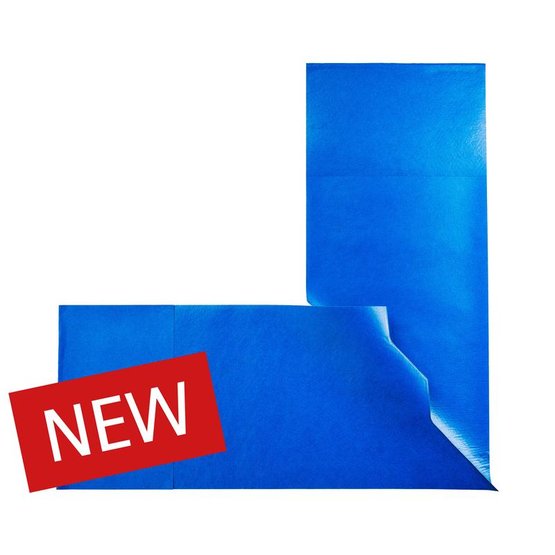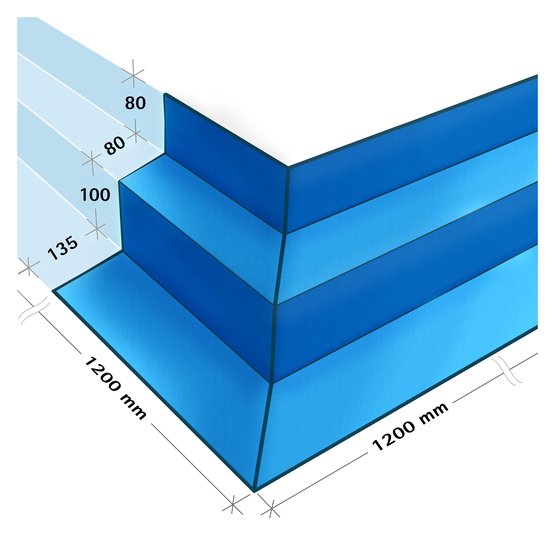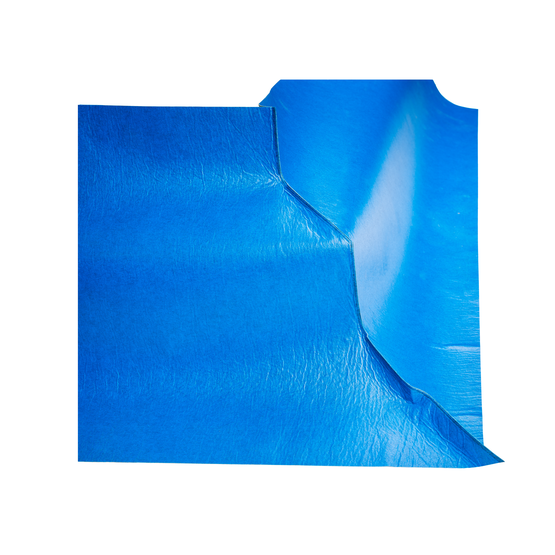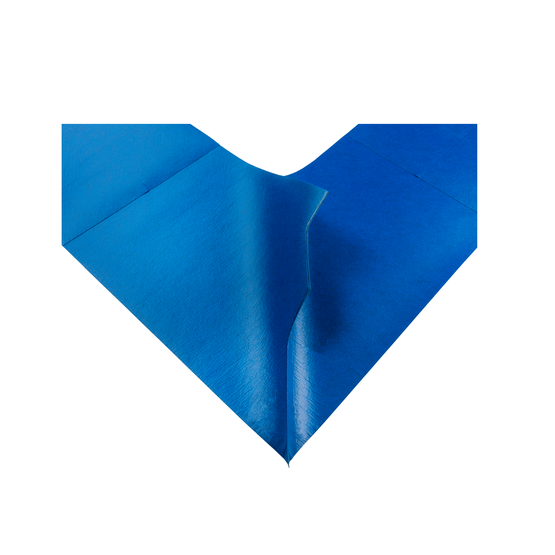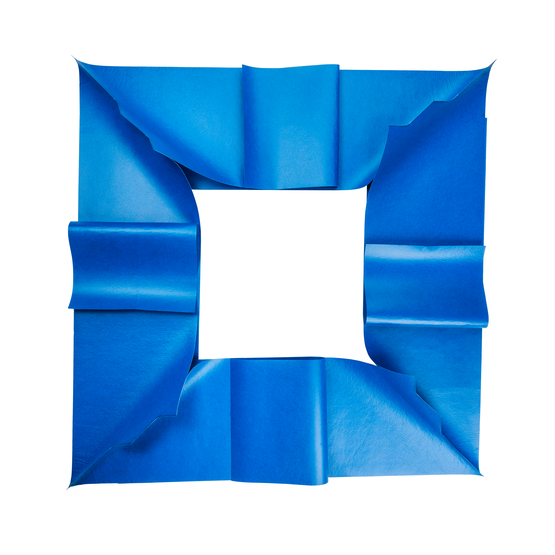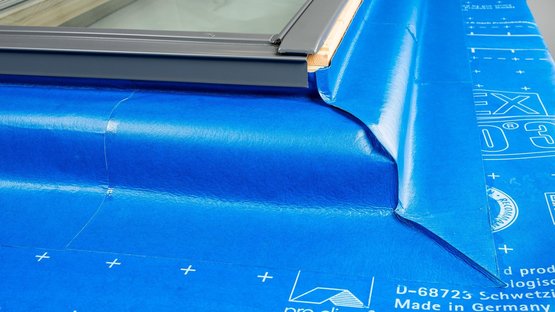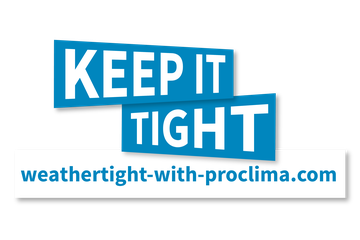Homogeneously weldable 3D sealing strips for skylight corners
Advantages
- Practical sealing strip for challenging joints thanks to pre-fabricated 3D geometry
- Reliable sealing of corners: homogeneously weldable with a solvent welding agent or hot air
- Extremely high tear-resistance and very stable
- Can be easily adapted for shorter base lengths, for example, using a knife or scissors
- Excellent occupational safety: non-slip and abrasion-resistant surface
Areas of application
For reliable sealing of skylight corners within the SOLITEX WELDANO weldable roofing underlay system. This diffusion-open shaped element, which is supplied pre-welded, can be welded to the SOLITEX WELDANO 3000 roofing underlay membrane in a homogeneous manner in terms of materials using the system solvent welding agent or hot air.
Installation instructions
Substrate
Suitable for installation over pressure-resistant subsurfaces, e.g. timber sheathing, wood-based panels and wood-fibre underlay panels. The subsurface must be dry, free of frost, clean and free of any sharp-edged or pointed objects.
General conditions
Membrane edges are to be welded using the WELDANO TURGA (HS) system solvent welding agents or a hot air gun. The welding area must be dry and free of frost, dust and grease. If there is dirt (e.g. oil) on the surface, moisten a cloth lightly with WELDANO TURGA (HS) system solvent welding agent and use it to clean off this dirt.
Welding with a solvent welding agent can be carried out at temperatures above 0 °C (32 °F) for WELDANO TURGA or 10 °C (50 °F) for WELDANO TURGA HS. Please observe the hazard notices on the container.
If a hot air gun is being used, we recommend a temperature of around 220 to 280 °C (430 to 530 °F) depending on the ambient temperature and wind conditions. Test this setting by carrying out a test weld on a sample piece of membrane. A 40 mm (1⅝″) nozzle width has been found to be suitable in practice for welded joints between surface membranes. A 20 mm (¾″) nozzle may be more suitable in certain cases for more intricate joints.
As an alternative to the use of the WELDANO ROFLEX, WELDANO ROFLEX MODI, WELDANO INVEX, WELDANO INVEX 3D or WELDANO INCAV system shaped elements, these elements can also be made by cutting appropriate shapes out of SOLITEX WELDANO 3000 membranes.
pro clima on the outside ... and it's a wrap!
Weathertightness with pro clima
Find out more about pro clima's system solutions and products for sealing your building envelope on the outside - with roofing underlay membranes, breather membranes for facades, protective membranes for timber structures during the construction phase, and a full range of sealing tapes, sealants and accessories.


